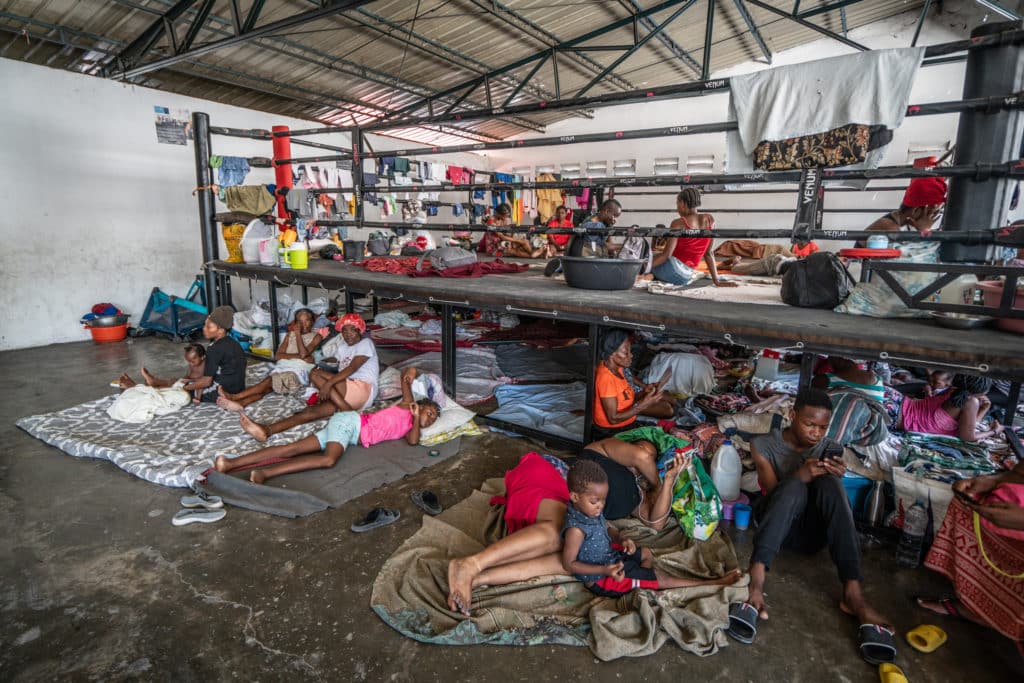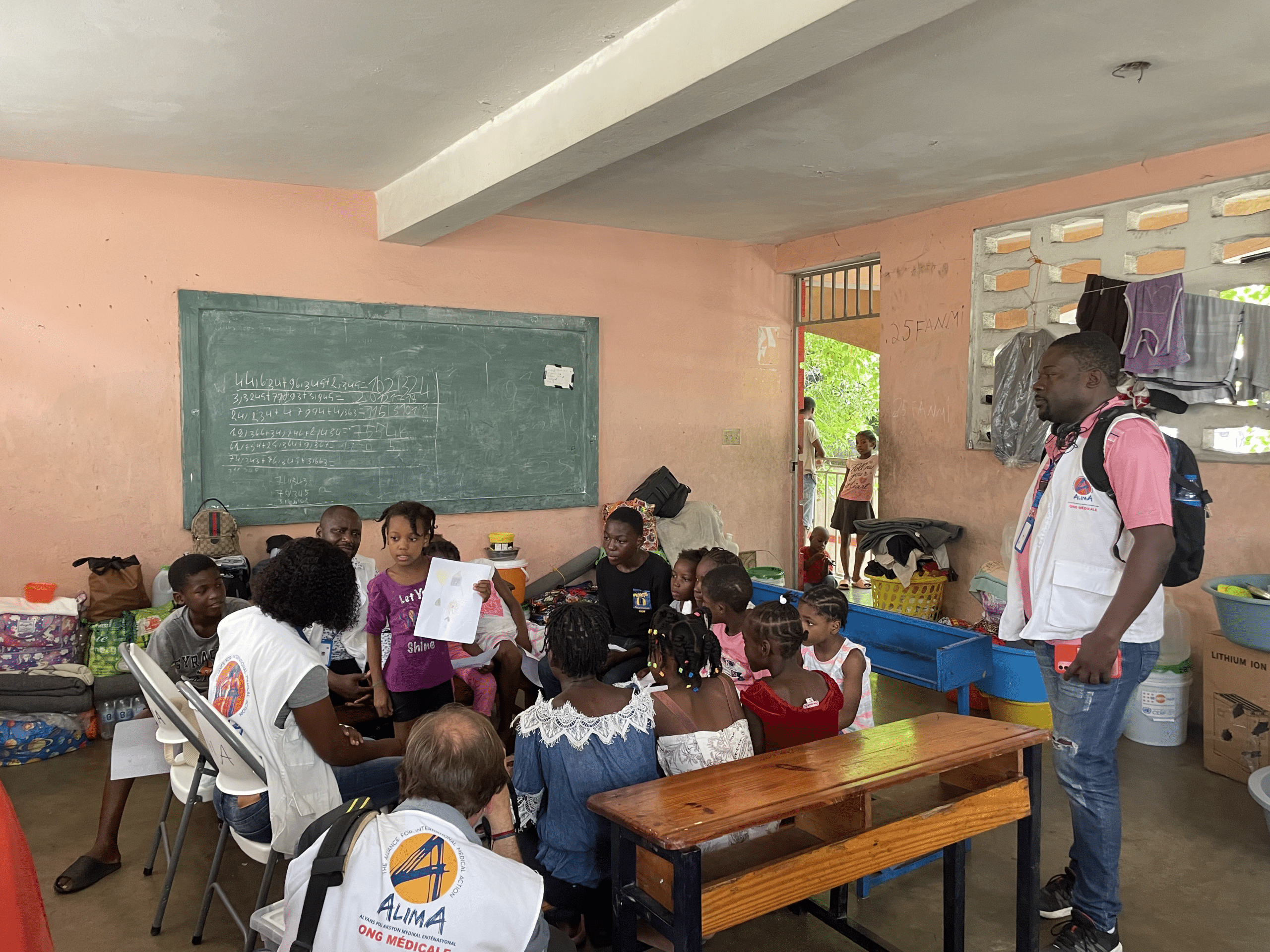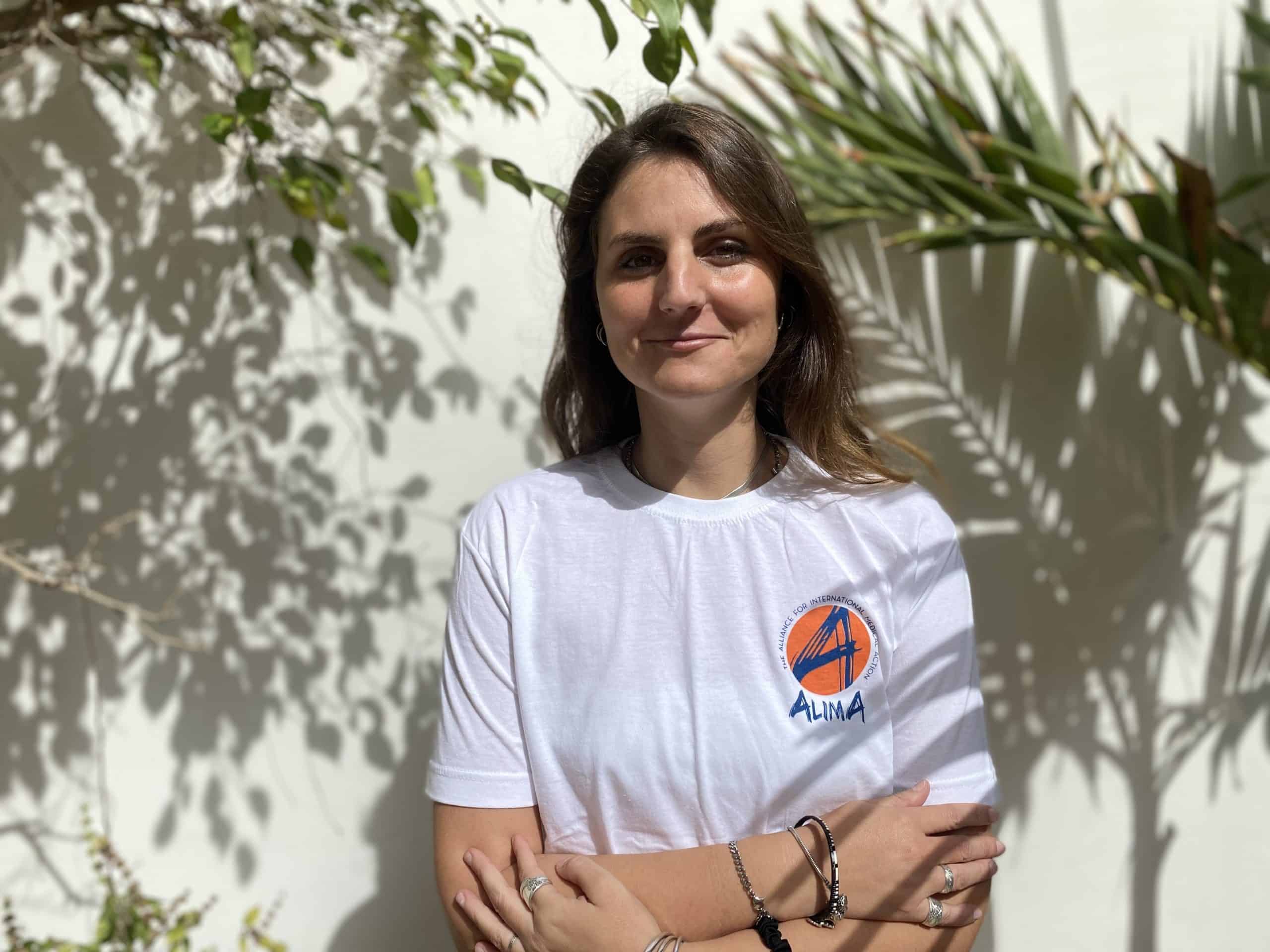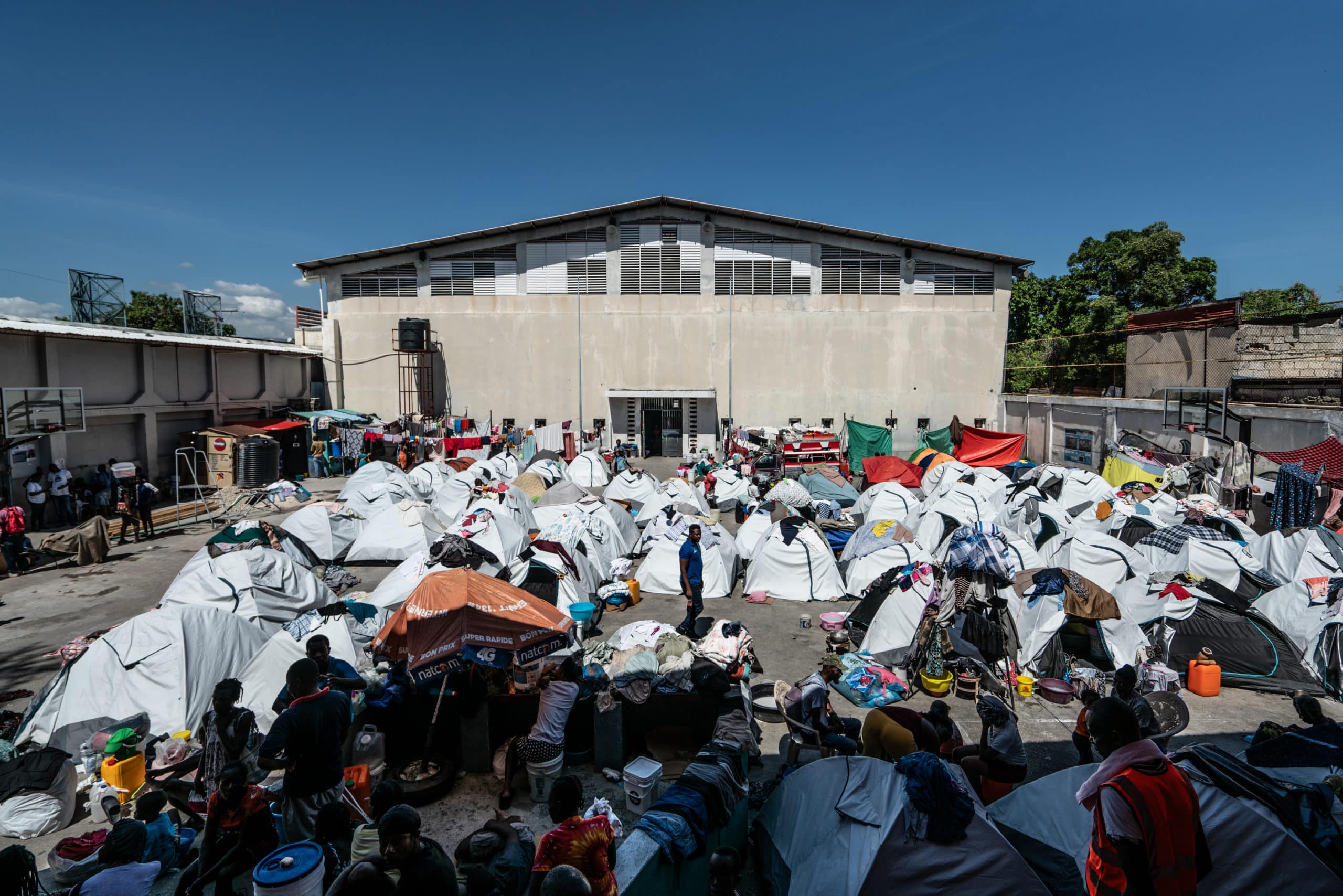Haiti
Start of program: 2024
Key figures:
- 5.5 million people in need of humanitarian assistance and protection in 2024, nearly half the population (OCHA, 2023)
- 5 million people facing food insecurity, or 45% of the population (UNO, March 2024).
- 362,000 internally displaced people in March 2024 (IOM).
Areas of intervention:
- Caring for internally displaced persons
- Reproductive health care
- Support for the response to a cholera epidemic
Humanitarian and health situation in Haiti
The alarming humanitarian situation in Haiti further deteriorated in 2023. According to the WHO, it is the most grave crisis in the Americas in 2024.
For several years now, Haiti has been shaken by a series of political, economic, and security crises. The situation rapidly deteriorated to alarming levels in 2023, prompting the launch of a UN-backed international security mission. While the mission has been slowly deploying, the population continues to suffer from gang violence. In 2023, the violence claimed nearly 5,000 lives, including more than 2,700 civilians. According to a UN report published in January 2024, more than 310,000 people were forced to flee their homes, double the number from the previous year and at least 15 times more than in 2021.
The escalating violence is severely hampering the ability of health authorities and organizations to provide an emergency response. A cholera epidemic that reappeared in October 2022 continues to spread. In the growing number of sites for internally displaced persons, the inhabitants are deprived of everything. According to forecasts, more than 5.5 million people will need humanitarian aid and protection in 2024, i.e. almost half the population. The country is ranked among the ten most serious food crises in the world.
In Port-au-Prince, health facilities have shut down in some of the districts most affected by the violence. Structures that are still (partially) functional are difficult to access, and people are afraid to travel due to insecurity. Public health care facilities face regular shortages of staff, medicines and supplies. Even if a person overcomes security and geographic barriers to reach a health facility, there is no guarantee that they will receive appropriate care.

ALIMA's impact on the ground
In response to the immense health needs, ALIMA launched an emergency mission to Port-au-Prince in February 2024. As one of the few international medical humanitarian NGOs working there, ALIMA can attest to the unprecedented nature of the situation.
During an exploratory mission in late 2023, ALIMA teams identified the barriers that people face in accessing health care.
In a situation where the main challenge is access to patients, ALIMA will adhere to its model of alliance with local actors and work with a Haitian NGO, combining the deployment and mobilization power of an international NGO with a local NGO’s knowledge of the terrain and communities. This partnership will provide the local anchoring essential to the acceptance of humanitarian activities.
Activities will be focused on the most vulnerable populations and will revolve around three areas of intervention requiring a strong base of community support.
Primary health care for internally displaced populations
Mobile teams will provide basic primary health care in sites for internally displaced persons. In early February, more than 10,000 people fled their homes in one week due to violence following socio-political unrest over the continued rule of the prime minister. Unique to the situation in Haiti, these movements are taking place within the capital city. People fleeing their homes are taking refuge in host families, schools and health facilities, or living in open spaces.
Providing antenatal, obstetric and neonatal care in the most difficult areas
Most pregnant women have not had access to this type of care for several months, and in some cases, years. Read the story of Sophia, whom we met at a site for internally displaced persons in November 2023.
Responding to a cholera epidemic
Since October 2022, the country has been experiencing a resurgence of the cholera epidemic. By early 2024, all of Haiti’s provinces were affected. The security situation makes it difficult to provide an effective response.
True to its working model of collaborating closely with Ministries of Health, ALIMA will be supporting local health authorities to organize an effective response to the cholera epidemic. ALIMA teams will provide care to those affected by the disease and organize awareness campaigns to increase the impact of the response.
* Cover picture © ALIMA



